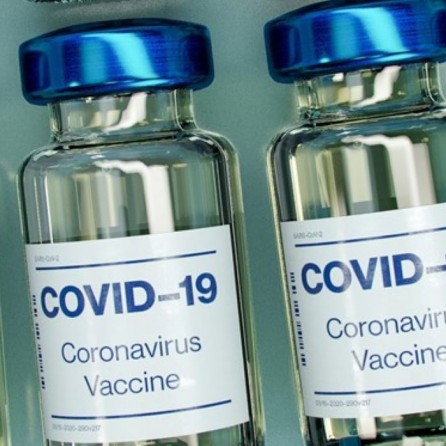
What implications are there for different types of COVID-19 vaccines, for people with MS?
In the midst of the chaos created by the global COVID-19 pandemic, I am sure it has not escaped your notice that there are now around 10 approved COVID vaccines, with many more in the earlier stages of development. The initial evidence suggests that they are extremely effective at preventing a person from developing coronavirus, and there are very high hopes that the end of this terrible infection might now be in sight. But of course, some key questions remain. Not least amongst these, is the safety of any potential vaccine.
It is crucial to point out that just because a treatment has been produced quickly, it does not mean that any shortcuts have been taken. Given the vital importance of these projects, the timeline has been shortened by conducting some of the many research steps simultaneously, rather than waiting to complete phase one before moving to stage two etc., and also by starting the lengthy regulatory processes at the beginning of the development process, not the end. This does not mean that key steps are being omitted or that risks are being taken with our health, and this innovative process may even help to fast-track treatments for other conditions in the future, perhaps even MS. Where previously it took 10 years or more to develop a treatment and get it to market, this could now be achieved in as little as one to two years.
It is also important to realize that the decision on the safety of any potential vaccine does not lie in the hands of the pharmaceutical companies that make them, but rather in the independent pharmaceutical regulatory bodies, such as the FDA in the United States, or the MHRA in the U.K. Safety is their primary concern, especially when proposing to vaccinate large proportions of the population.
So far, all three vaccines report very good safety data, with no significant complications or major side effects. The Oxford vaccine trial was paused twice, but on both occasions was restarted after investigation – a relatively common event in trials, and no cause for concern at this stage.
Having MS does not mean that you shouldn’t take the COVID-19 vaccine, and there is nothing to suggest that a vaccine will cause MS, trigger relapses or worsen symptoms. There are some potential issues for people taking certain disease modifying drugs (DMDs) however, and these may make some vaccines either unsafe or ineffective.
If a vaccine is “live”, then it contains small amounts of active virus particles, and there is the potential that you might develop the infection if the immune system has been suppressed, as is the case with some MS treatments. For example, the polio, yellow fever and MMR vaccines are all live, and many people with MS are advised to avoid these whilst taking certain DMDs (please speak to your MS team if you are unsure). But at this stage it appears unlikely that the COVID-19 vaccine will be live, in which case it should be safe, regardless of which DMD you might take.
The second issue is whether the vaccine will still be effective if you are taking DMDs. For a vaccine to work, it must trick the immune system into launching an attack, as if it were fighting off the real infection, thereby hopefully providing long-term immunity. Some of the DMDs will blunt the reaction of this immune response, for example in the first weeks and months after an immune reconstitution treatment such as alemtuzumab (Lemtrada) or a stem cell transplant.
The anti-CD20 drugs, such as Ocrelizumab (Ocrevus) or Ofatumumab (Kesimpta), deplete the immune system’s B cells, which are responsible for making the antibodies that provide much of the long-term immunity of vaccines. So there is the possibility that a COVID-19 vaccine will not be as effective for some people.
But even if there are reasons why you personally are not able to take the vaccine, this is still very positive news. If there is a widespread population vaccination program, this will control the spread of the pandemic and significantly reduce your chances of becoming infected with COVID-19. At the present moment, it is the very best hope we have of returning our lives to “a new normal”.
We eagerly await the next developments, and will of course keep you updated.
Stay safe
More information is shared regularly, which differs by country. We will endeavour to share links and information with you as and when it becomes available.
Worldwide
Australia
https://www.msaustralia.org.au/about-ms/covid-19-information-people-ms14 Jan
US
COVID-19 Vaccine Guidance for People Living with MS 13 Jan, National Multiple Sclerosis Society
UK
The UK MS register is asking ‘What do you think about the COVID-19 vaccine?’
If you live in the UK and have MS, please join/log in to the UK MS Register